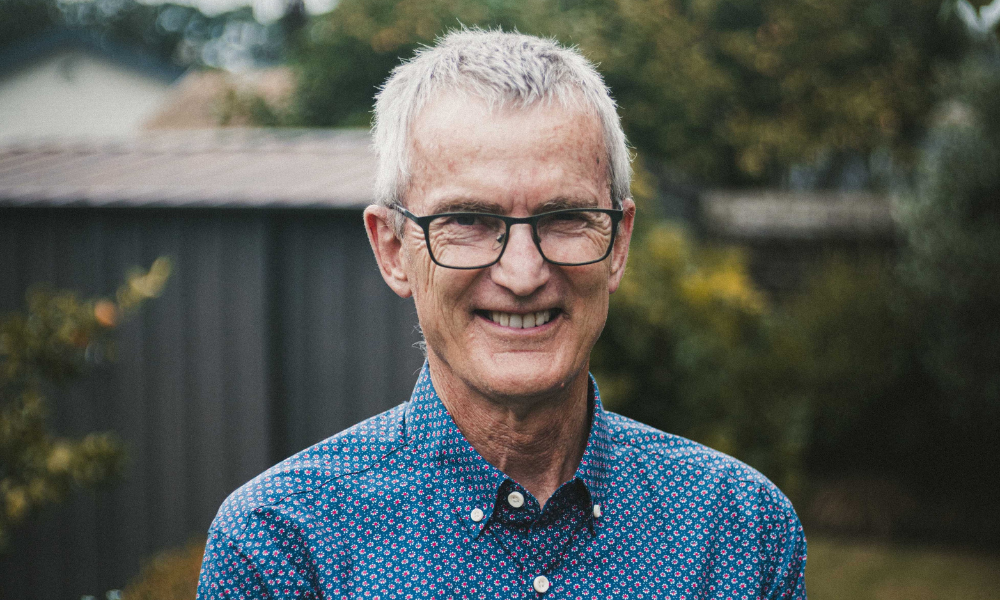
Les Allen talks disillusionment in young lawyers and the issue of succession in the profession

Many lawyers ignited their passion in law due to legal TV dramas, but for commercial law specialist Les Allen, they can give the wrong impression of the kind of everyday life a lawyer leads.
The new author aimed to showcase New Zealand’s legal profession in his debut novel If That’s What It Takes, which was released last June. He juggled the project with his work as director at Gaze Burt, where the firm seeks to effectively cultivate the next generation of lawyers.
In this May interview, Allen talks about the need to improve law firms’ working conditions, early exits from the profession by young people due to disillusionment, anticipating more days off, and working with clients across generations.
My strengths were in language and maths, which offered a limited number of options. Law looked interesting, with challenging situations and a variety of people to meet. I did a double degree in law and accounting, which was very rare at the time though common now. That proved a good choice as some knowledge of accounting is often helpful in commercial work.
I enjoy meeting new clients, but I enjoy repeat business from clients too as we can develop a real relationship over time, sometimes over three generations. Especially when you can see some clients with the kind of integrity that permeates through their families and all their relationships – that’s something I really admire. I also enjoy unravelling a problem that has been stressing a client, although that can be a long process.
In retrospect, the television programmes on law weren’t helpful as they gave the impression that all lawyers work full time in criminal law, even though very few of them do. Television programmes, particularly American ones, give very little insight into the everyday work of most New Zealand lawyers.
We have always had a huge emphasis on culture – care and understanding – at Gaze Burt. The result is our tight knit team, some of whom have been with the firm 30 years or more. A balanced life is important to us, and Gaze Burt was offering flexible working long before it became in vogue.
We are continuing to build on that not only by continuing to support staff with particular working requirements, but also by a complete refit of our largest office (currently under way) to provide a new working environment targeted at how our staff want to work. Going against the grain, this means a number of offices rather than a totally open plan working space!
We also have a big focus this year on supporting staff development, and we are excited to see our new graduates beginning a brand new, bespoke inhouse training programme this month. We have always been strong on training, but this will be more formalised.
Even prior to lockdowns, Gaze Burt had invested heavily in making sure electronic files were in place and remote working was accessible. A silver lining of Covid has been seeing these systems develop further, allowing us to give even more flexibility to staff and our clients. Without that, Covid would have made work impossible.
Personally I am paper light (if that!) rather than paperless. Maybe it’s an age thing, but if something is important then I can absorb it better on paper rather than on a screen.
It’s not my accomplishment but I’d say it’s having 50% female directors for the first time, which I’m sure will add another dimension to the firm.
There has been a recent focus on improving working conditions in law firms, especially for graduate entrants into the profession. Some firms talk a good game, but the profession has a long way to go. It’s disappointing seeing some young people leave the law completely, burnt out and disillusioned, when many of them could have been very good lawyers in the right firm.
Many firms are experiencing difficulty finding staff, especially at senior levels. Like any business we are affected by inflation and rising interest rates. Succession is also an issue in the law, with baby boomer lawyers retiring. It’s a challenging time ahead.
I also think modern lawyers have to spend far too much time on compliance issues. Lawyers used to argue about contract issues, but now they now agonise over the finer points of e-dealing or whether the client’s identification papers have a hyphen in the wrong place. We need eyes in the backs of our heads – will residential withholding tax apply and can we be sued if we don’t deduct it? How do you work out if a client is involved in a suspicious transaction? And which would be worse – having the police prosecute you for not disclosing a suspicious transaction or the client sue you if you disclose too much? Can the client sue you for advice you have given, or for not giving advice that would have made a difference to his/her decisions?
Another problem is that the legal profession thrives on interaction but during the coronavirus epidemic, most lawyers were stuck at home. That usually works well with experienced staff but not with new or less experienced staff. Some things are very hard to discuss with clients or staff by phone or even by Zoom.
More days off and spending more time with my wife Jenny.
If you were given an opportunity to spend a day with anyone (living or dead), who would it be and why?
David Lange. When I was at law school he gave us some lectures in ethics. He was very inspiring. I always admired his verbal skills and his unique sense of humour.